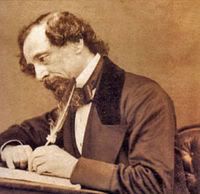Due to popular demand (which I cannot understand for the life of me), today’s piece will discuss chapters 4 and 5 in Karl Marx’s Capital, volume I. On the surface, these two chapters appear simple and in many senses unimportant.
However, that would be erroneous to conclude. These two chapters clarify two important circuits that are essential to understand the capitalist economic system and to distinguish it from earlier modes of production. Trade and money existed before capitalism itself, so what distinguishes capitalism from ancient slave societies, feudalism, and pre-capitalist mercantile economies?

Karl Marx
In addition, Marx describes the different functions of money differentiating money as a unit of account or medium of circulation (circuit of commodities) from money in its role as capital (circuit of capital). Additionally, these chapters introduce the notion of surplus value, the self-expansion of capital, and the notion of a transfer of revenue between capitalists as distinct from the creation of surplus value and end on a cliff-hanger before Marx’s explanation of the creation of surplus value which links his discussion in chapter 1 on the value of commodities to the labour process itself.
All references come from Karl, Marx (1867) Capital Volume I, Penguin Classics, 1990.



